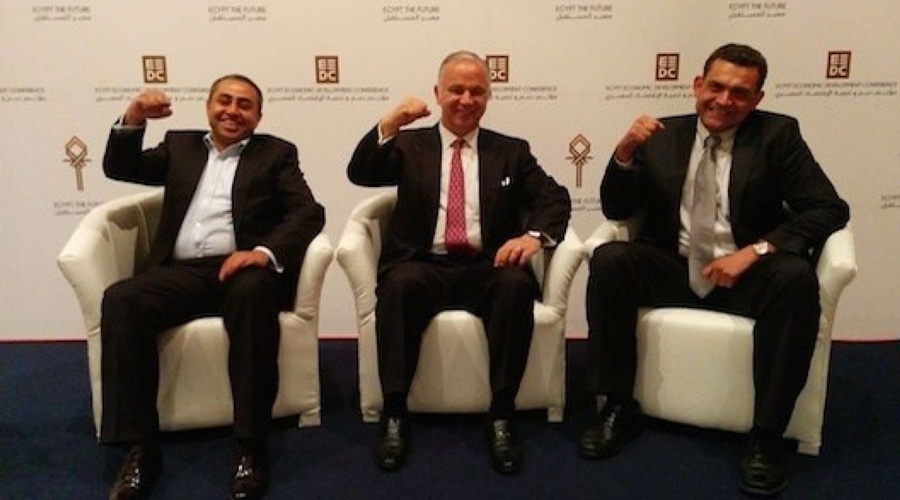What I know about Egypt's sluggish investment: Wael Amin

It might be normal for a country of more than 90 million to have a ton of entrepreneurs planning events around promoting even more ideas, more innovations and more startups. Many of these ideas usually disappear, naturally, and with time. But sometimes, Egypt’s startups with potential are unnaturally forced to halt their activity due to a lack of sufficient investment in Egypt’s entrepreneurial ecosystem and that’s a shame.
To help determine these gaps and find ways to fill them, Wamda spoke to Wael Amin, cofounder of the investment fund Sawari Ventures and owner of the business incubator Flat6Labs. His cofounders of Sawari Ventures are Ahmed El Alfi and Hany Al Sonbaty.
Over the past four years, Sawari Ventures has invested in seven Egyptian startups in their growth stage. Amin preferred not to disclose their names. Flat6labs has incubated around 100 regional early stage startups “with investments that reached 5 million dollars.”
For his part, Amin has more than 20 years of experience in the entrepreneurial tech field. He founded Itworx for software solutions in 1994 after graduating from the American University in Cairo with a computer science degree. In 2004, he received an MBA from the same university.
Amin shared his thoughts on the lagging investment climate in Egypt and what needs to be done to resolve the issues such as setting regulations that are appropriate for investment, education and training.

Investments are becoming diverse. Over the past 50 years, private sector companies have intensified their investment in the Egyptian real estate sector which proved to be a success that no one can deny. But today, as the real estate sector is heavily influenced by political and economic crises, the private sector has to diversify its investments. Egypt is going through what can be called an economic transitional phase where the economy moves from the classical era to the knowledge era and is waiting for the investment trend of the private sector to move from real estate to tech innovation projects.
Offer is 10 times bigger than demand. Ideas, inventions and startups are 10 times bigger than available investments. The number of investment entities in Egypt is limited and the bulk of investments goes to incubators and accelerators for startups in the early stages. After graduating from these incubators and accelerators, startups and entrepreneurs suffer to acquire investments which are often foreign.
Our standards for accepting companies differs according to the needs of each company we select. At Sawari Ventures, we receive 100 applications a year, of which we are very selective, and at Flat6labs, we receive 1,000 applications yearly of which we only take 20. The gap between supply and demand is obvious.
Regulations that encourage foreign investments need substantial modifications. Foreign investors need regulations that encourage investment. This applies to regulations for starting a business, bankruptcy and the ease of moving capital. We cannot say that the bill now being discussed at parliament regarding granting foreign investors citizenship will be a solution for the investment crisis, because the foreign investor in the tech field does not care about getting a citizenship as long as the sector is run digitally from A to Z.
Banks don’t invest in startups. The Central Bank of Egypt announced allocating 200 billion Egyptian pounds (US$20 million) for SMEs for only a 5 percent interest rate. But this is not what we need. The projects the banking sector is promoting are all traditional ones. What we really need is a bill for lending to entrepreneurial projects that use technology to better people’s lives. For now, it is hard for an entrepreneur to get a bank loan because the investment risks associated with these projects, and most entrepreneurs avoid loans in fear of financial burden. The only way out of this current economic crisis is for banks to invest in these entrepreneurial projects for a share.
Internal investment void holds off getting external investments. In order to take part in the Egyptian entrepreneurial scene, foreign investors must see an active local investment climate. However, at the moment, investments in the second, third and fourth rounds are completely absent which makes it hard for entrepreneurs to persuade foreign investors.
Some entrepreneurial sectors are still innovation free. While much of the entrepreneurial world is looking to sectors like artificial intelligence, virtual reality, fintech, big data and self-driving vehicles; these sectors are still slow in Egypt. The exceptions are only a few projects in comparison to the global scene like Fawry in Fintech and Affectiva in AI.
Entrepreneur’s ambitions need changing. A fair evaluation when building a business model is one of the things Egyptian youth lack. Most business models we receive are accompanied by exaggerated expectations during the first and second year, and then expectations start to drop during the next three years. That leads us to conclude that the entrepreneurs’ ambitions regarding their projects isn’t enough to achieve them in the long-run.

Education at the university level must be enhanced. College education in Egypt still needs an upgrade. Thousands of students graduate yearly with expired information about technology. That makes it hard to find qualified employees in the job market and even harder to keep up with the fast changes of the tech scene. This is obvious in specializations such as app development, digital marketing and UX design.
We are on the right track. There is no doubt that despite all obstacles and missing links in the Egyptian entrepreneurial sector, all signs show that we are on the right track. This can be seen by the Egyptian government moving towards renewable energy sources, and the partnerships between the Ministry of Planning and Fawry to launch Hokomty, an app for paying for all governmental services via mobile. In March, the prime minister also recommended to make an amendment to legalize car hailing tech companies such as Uber and Careem. All these initiatives confirm that Egypt is looking towards the modern economy based on invention and innovation.


